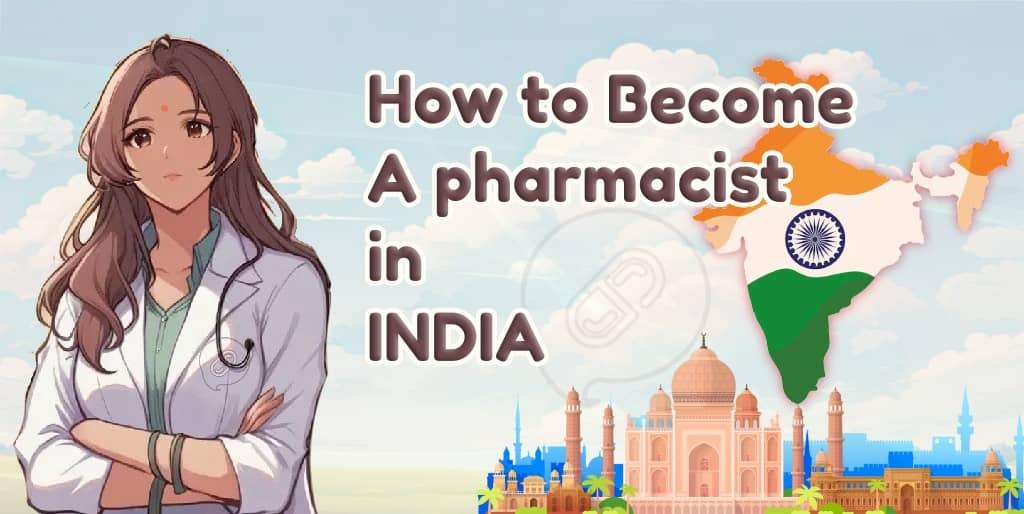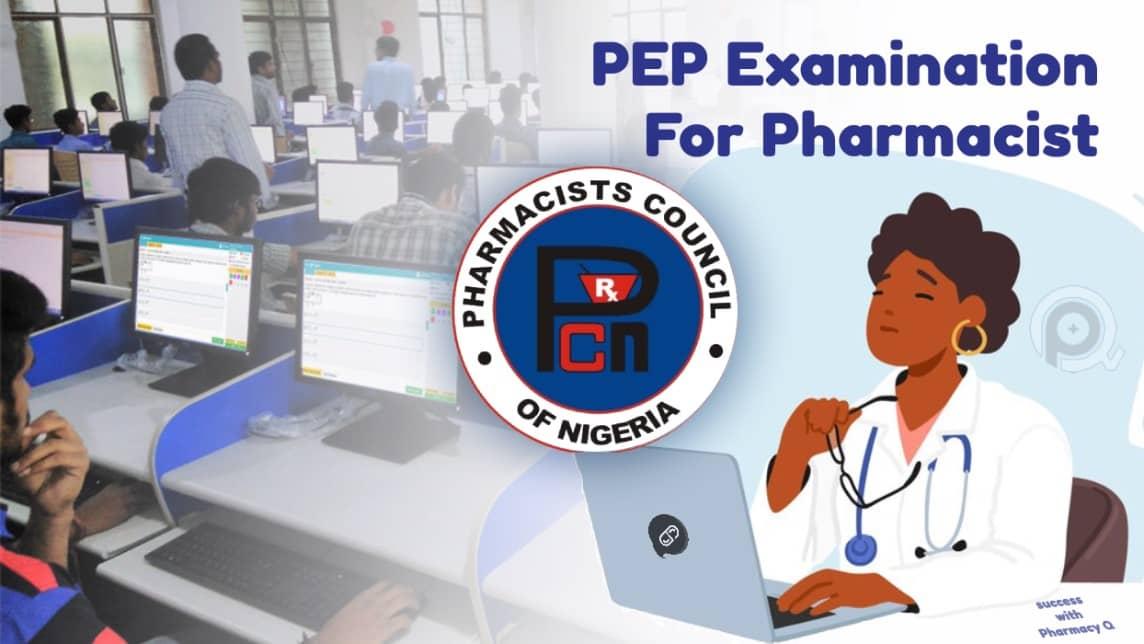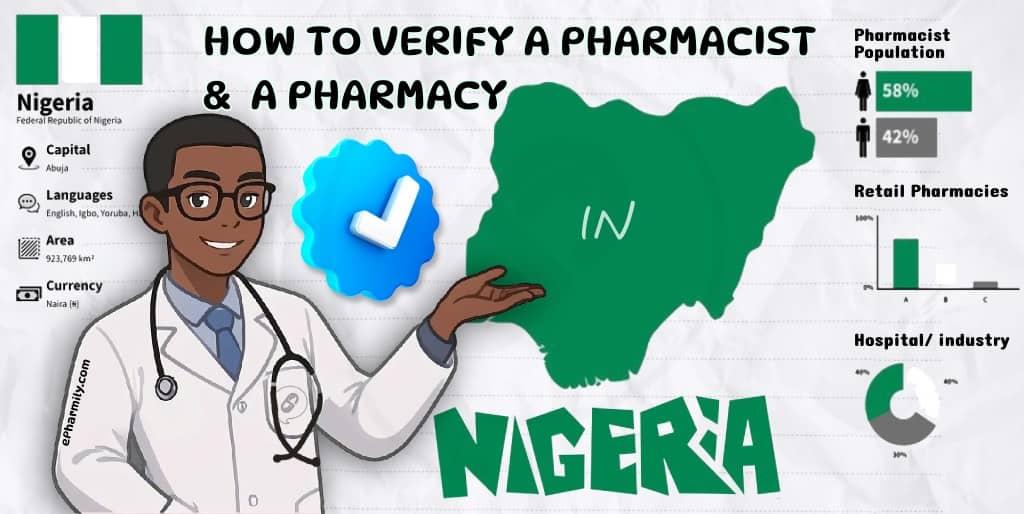How to Become a Pharmacist in India

Becoming a Pharmacist in India can be a dynamic and essential profession in India’s healthcare ecosystem.
Pharmacists ensure the safe and effective use of medicines, counsel patients, and contribute to medical research and pharmaceutical manufacturing.
With the growing healthcare needs of the country and expanding pharmaceutical industries, pharmacy offers a promising career path for science students.
If you are interested in becoming a pharmacist in India, this guide will walk you through the educational qualifications, registration process, career opportunities, and future prospects in detail.
Read: Why I chose Pharmacy Over Medicine
1. Understanding the Role of a Pharmacist in India
Pharmacists are healthcare professionals who specialize in medicines and their use. They play a crucial role in:
- Dispensing prescribed medicines accurately.
- Advising patients on correct medication usage, dosage, and possible side effects
- Monitoring drug interactions and ensuring patient safety.
- Collaborating with doctors and healthcare teams to optimize treatment plans.
- Managing pharmacy operations in hospitals, clinics, and retail outlets.
- Engaging in pharmaceutical research, drug development, and quality control.
- Ensuring compliance with drug laws and regulations.
- The pharmacist’s role has evolved beyond dispensing to include clinical pharmacy, pharmacovigilance, regulatory affairs, and pharmaceutical marketing.
Read: Differences between Pharmacist vs. Pharmacy Technician
2. Educational Pathways to Become a Pharmacist in India
A. Minimum Eligibility Criteria
To become a pharmacist in India, you must have a science background in your higher secondary education (10+2).
The essential subjects are Physics, Chemistry, and either Biology or Mathematics. The minimum qualification to practice as a registered pharmacist is a Diploma in Pharmacy (D.Pharm).
B. Pharmacy Courses Overview
|
Course |
Duration |
Eligibility |
Scope and Career Opportunities |
|
Diploma in Pharmacy (D.Pharm) |
2 years + 6 months internship |
10+2 with Science (Physics, Chemistry, Biology/Maths) |
Entry-level qualification to become a registered pharmacist; work in retail or hospital pharmacies. |
|
Bachelor of Pharmacy (B.Pharm) |
4 years |
10+2 with Science (minimum 50% marks) |
Broader career options in pharmaceutical industries, research, academia, clinical pharmacy. |
|
Doctor of Pharmacy (Pharm.D) |
6 years |
10+2 with Science |
Focus on clinical pharmacy and patient care; recognized as a professional doctorate. |
|
Master of Pharmacy (M.Pharm) |
2 years |
B.Pharm |
Postgraduate specialization in various pharmacy disciplines such as pharmacology, pharmaceutics, pharmaceutical chemistry. |
Read: How To Become A Pharmacist In CANADA
C. Diploma in Pharmacy (D.Pharm)
- Duration: 2 years of academic study + 6 months of practical training.
- Curriculum: Includes subjects like Pharmaceutics, Pharmaceutical Chemistry, Pharmacology, Pharmacognosy, and Hospital & Clinical Pharmacy.
- Practical Training: Mandatory internship in a hospital or community pharmacy to gain hands-on experience.
- Career: After completion, you can register as a pharmacist and work in retail pharmacies, hospitals, or clinics.
D. Bachelor of Pharmacy (B.Pharm)
- Duration:4 years.
- Curriculum: Covers advanced topics in pharmaceutical sciences including drug formulation, pharmacokinetics, medicinal chemistry, and pharmaceutical analysis.
- Internship: Industrial or hospital internship is part of the course.
- Career: Opens doors to pharmaceutical industries, research labs, regulatory bodies, drug manufacturing, and academia.
Read: How to Become a Pharmacist in U.S.A
E. Doctor of Pharmacy (Pharm.D)
- Duration: 6 years (5 years academic + 1 year internship).
- Focus: Clinical pharmacy, patient counseling, and direct involvement in healthcare delivery.
- Career: Clinical pharmacist, hospital pharmacy, research, and academia.
3. Admission Process for Pharmacy Courses
Admission to pharmacy courses is merit-based or through entrance examinations conducted by various universities and states.
Some common entrance exams include:
- GPAT (Graduate Pharmacy Aptitude Test): For M.Pharm admissions.
- State-level Pharmacy Entrance Exams: Such as Maharashtra CET, TS EAMCET, etc.
- Direct Admission: Based on 10+2 marks in some private colleges.
Candidates must ensure the pharmacy college is approved by the Pharmacy Council of India (PCI) and affiliated with a recognized university.
Read: How To Become A Pharmacist in Dubai
4. Registration with State Pharmacy Council
After completing the required qualification (D.Pharm or higher), it is mandatory to register with the State Pharmacy Council to legally practice as a pharmacist.
Registration Procedure:
- Submit an application form along with educational certificates, proof of internship, and identity documents.
- Pay the registration fee.
- The council verifies documents and issues a Pharmacist Registration Certificate.
- This certificate must be renewed periodically as per state rules.
Without registration, one cannot legally dispense medicines or work as a pharmacist in India.
Read: How to become a Pharmacist n Nigeria
5. Legal Requirements to Open a Pharmacy
If you plan to start your own pharmacy business in India, you must obtain a Drug License from the State Drug Control Department.
Types of Drug Licenses:
- Retail Drug License: For selling medicines directly to consumers.
- Wholesale Drug License: For bulk sale to retailers or hospitals.
- Manufacturing License: For producing pharmaceutical products.
Read: Why I Quit My Pharmacist Job?
How to Obtain a Drug License:
- Ensure that the premises meet the standards set by the Drug Control Department.
- Employ a registered pharmacist (yourself or someone else) to fulfill legal requirements.
- Submit the application online or offline with necessary documents such as identity proof, proof of ownership, pharmacist registration certificate.
- After inspection and approval, the license is granted.
6. Career Opportunities for Pharmacists in India
Pharmacy offers diverse career options in various sectors:
A. Community Pharmacy
- Dispensing medicines, counseling patients, managing inventory.
- Opportunity to start your own retail pharmacy.
- Involves direct interaction with patients and healthcare providers.
B. Hospital Pharmacy
- Managing drug inventory, preparing prescriptions, monitoring drug therapy.
- Clinical pharmacists work closely with doctors and nurses.
- Increasing demand for clinical pharmacy services in hospitals.
C. Pharmaceutical Industry
- Roles in drug formulation, manufacturing, quality control, regulatory affairs, marketing, and sales.
- India is one of the largest pharmaceutical producers globally, offering numerous industrial opportunities.
D. Research and Development
- Conducting drug research, clinical trials, pharmacovigilance.
- Opportunities in government and private research organizations.
E. Academia
- Teaching pharmacy students in colleges and universities.
- Requires postgraduate qualifications (M.Pharm or PhD).
F. Regulatory Affairs and Pharmacovigilance
- Ensuring compliance with drug laws.
- Monitoring adverse drúg reactions and safety.
Read: Top Countries with High-Paying Pharmacy Jobs
7. Salary and Growth Prospects
- Entry-level pharmacists earn around INR 2.5 to 4 lakh per annum.
- Experienced pharmacists in hospitals or industries can earn INR 5 to 10 lakh or more.
- Senior roles in pharmaceutical companies, research, or regulatory bodies offer lucrative packages.
- Opportunities for entrepreneurship by opening retail or wholesale pharmacies.
Read: A World Without Pharmacists
8. Higher Studies and Specializations
Pharmacists can enhance their careers by pursuing:
- M.Pharm: Specialize in areas like pharmacology, pharmaceutics, pharmaceutical chemistry, clinical pharmacy.
- Pharm.D (Doctor of Pharmacy): For clinical specialization.
- MBA in Hospital Management or Pharmaceutical Management: For Managerial roles.
- PhD: For research and academic careers.
9. Challenges and Tips for Aspiring Pharmacists
- Competition: Pharmacy is a competitive field; choose reputed colleges and prepare well for entrance exams.
- Continuous Learning: Stay updated with new drugs, technologies, and regulations.
- Practical Exposure: Gain hands-on experience through internships and training.
- Ethical Practice: Always prioritize patient safety and ethical standards.
- Networking: Join professional bodies like the Indian Pharmaceutical Association (IPA) or ePharmily for career growth.
Conclusion
With the right dedication, ethical practice, and continuous learning, you can build a successful and impactful career as a pharmacist in India.











